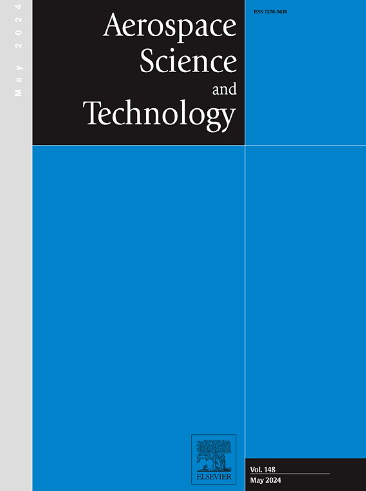A strategy for enhancing ignition of aviation fuels at high altitudes using nanoparticle and fuel-soluble catalysts
IF 5
1区 工程技术
Q1 ENGINEERING, AEROSPACE
引用次数: 0
Abstract
Improving the ignition performance of aviation fuels in high-altitude environments is essential for the reliable operation of aero-engines. This study investigated the catalytic ignition of RP-3 aviation fuel at high-altitudes using Co3O4 nanoparticles and fuel-soluble catalysts (platinum and palladium acetylacetonates). Ignition delay times (IDT) and ignition probabilities (IP) were measured in situ using thermocouples and a spectrometer. The results demonstrated that the addition of 150 ppm Co3O4 nanoparticles exhibited the best catalytic performance, achieving 100% IP with the shortest average IDT of 1.41 s. In contrast, the IP of RP-3 without catalysts was only 25%, with an average IDT above 15.92 s. The fuel-soluble catalysts also significantly improved the ignition performance. With 150 ppm addition, both cases reached 100% IP but longer IDTs than that of Co3O4. Thermogravimetric analysis indicated that Co3O4 nanoparticles catalyzed ignition through the Mars-van Krevelen mechanism at lower temperatures, while at higher temperatures they decomposed into CoO and O2, further facilitating ignition through both catalytic effect and the increased amount of oxidant. On the other hand, the fuel-soluble catalysts decomposed into noble metals or their oxidants that provided active sites for the surface oxidation of the fuel, with the heat release from this process initiating gas-phase ignition. These results provide a new strategy for ignition enhancement of aviation fuels in extreme environments via catalytic combustion.
求助全文
约1分钟内获得全文
求助全文
来源期刊

Aerospace Science and Technology
工程技术-工程:宇航
CiteScore
10.30
自引率
28.60%
发文量
654
审稿时长
54 days
期刊介绍:
Aerospace Science and Technology publishes articles of outstanding scientific quality. Each article is reviewed by two referees. The journal welcomes papers from a wide range of countries. This journal publishes original papers, review articles and short communications related to all fields of aerospace research, fundamental and applied, potential applications of which are clearly related to:
• The design and the manufacture of aircraft, helicopters, missiles, launchers and satellites
• The control of their environment
• The study of various systems they are involved in, as supports or as targets.
Authors are invited to submit papers on new advances in the following topics to aerospace applications:
• Fluid dynamics
• Energetics and propulsion
• Materials and structures
• Flight mechanics
• Navigation, guidance and control
• Acoustics
• Optics
• Electromagnetism and radar
• Signal and image processing
• Information processing
• Data fusion
• Decision aid
• Human behaviour
• Robotics and intelligent systems
• Complex system engineering.
Etc.
 求助内容:
求助内容: 应助结果提醒方式:
应助结果提醒方式:


